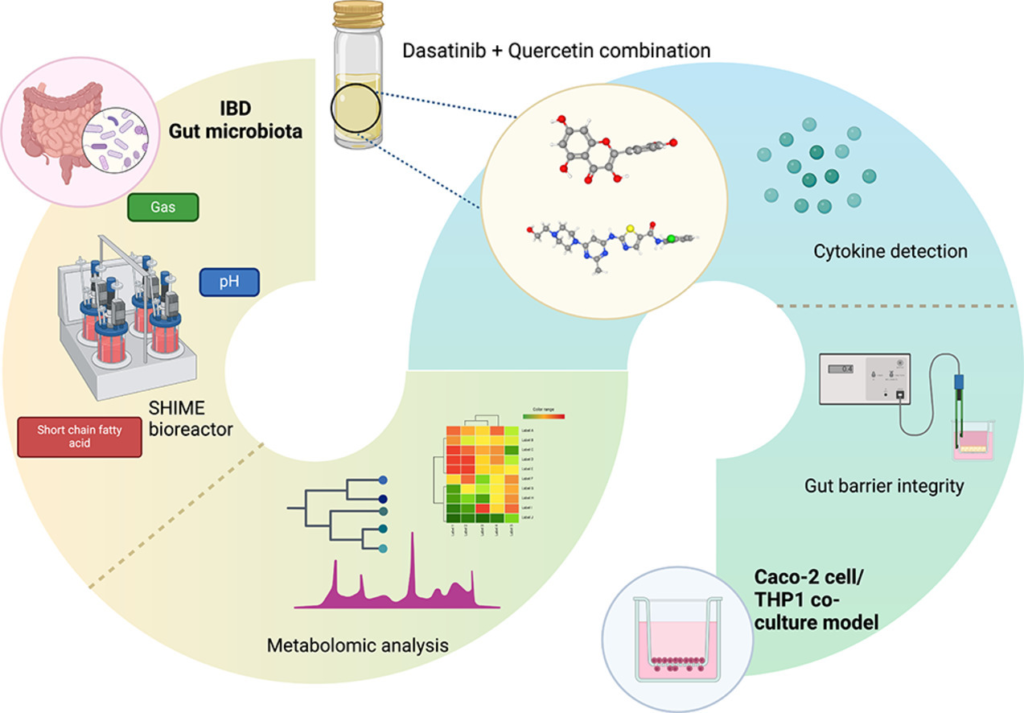- Home
- Effects of senotherapeutics on gut microbiome dysbiosis and intestinal inflammation in Crohn’s disease: A pilot study
- Effects of senotherapeutics on gut microbiome dysbiosis and intestinal inflammation in Crohn’s disease: A pilot study
Inflammatory Bowel Disease (IBD) is a chronic condition characterized by persistent gastrointestinal inflammation and gut microbiome imbalance, or dysbiosis. This imbalance contributes to disease progression by increasing reactive oxygen species (ROS), which promote cellular damage and the accumulation of senescent cells—aged cells that secrete inflammatory factors. These factors worsen IBD symptoms and create a cycle of inflammation and tissue degeneration.
Emerging research highlights senolytics—drugs that eliminate senescent cells—as a potential therapeutic strategy. A combination of dasatinib and quercetin (D + Q) has shown promise in breaking this cycle. Using the M-SHIME model, which simulates the human gut, we tested D + Q on gut microbiome samples derived from Crohn’s disease patients. The treatment altered metabolite production, notably increasing butyrate, a compound with anti-inflammatory and gut-healing properties. Metabolomic analysis also showed an increase in beneficial bacteria and a reduction in harmful species.
To explore cellular effects, a co-culture model of gut epithelial (Caco-2) and immune (THP1) cells revealed that D + Q reduced inflammatory markers such as NF-κB, TNF-α, CXCL-10, and MCP-1, while boosting anti-inflammatory cytokines IL-6 and IL-10. These findings suggest D + Q could offer a dual-action approach to IBD therapy by targeting both microbiome and immune pathways.
Read more here!



